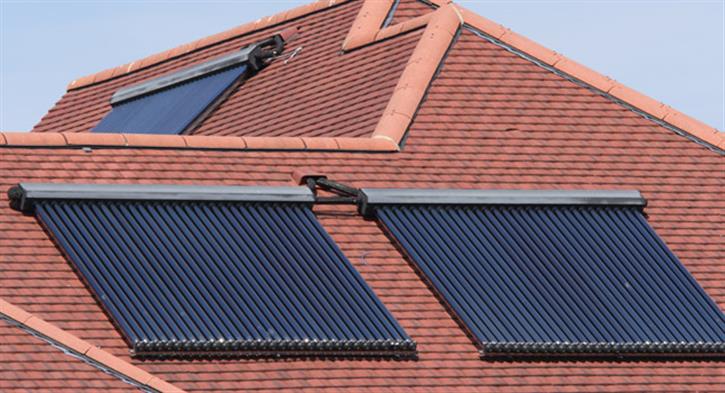

The Heating & Hotwater Industry Council (HHIC) is calling for solar thermal panels to be made eligible for the lower rate of VAT, in response to an HM Revenue & Customs consultation on the reduced rate of VAT for the installation of energy savings materials.
The consultation comes following a European Court of Justice (ECJ) ruling in June 2015, which declared that Britain's longstanding 5% VAT rate on the supply and installation of energy saving products breached the ECJ VAT Directive.
To comply with the ruling, the consultation proposed products such as insulation and wood-fuelled boilers remain at the reduced 5% rate, but renewable energy products such as rooftop solar panels and wind turbines will have to move back to the standard 20% rate of VAT.
The consultation, which launched in 9 December and closed on 3 February, aimed to assess whether or not the proposed legislation achieves its objective and whether the proposed implementation date is likely to cause any problems.
“Following the ruling from the Court of Justice of the European Union which found that the UK had failed to correctly apply the relief, we understand the need for this consultation, but would ask that details be further clarified,” said Stewart Clements, director of HHIC.
“Firstly, the current consultation simply describes solar technologies as ‘solar panels’ and we would ask that this is qualified to distinguish between solar PV and solar thermal.
“Solar thermal should be eligible for the lower rate of VAT as unlike solar PV, thermal panels warm water for use, which reduces the energy used to heat water and so meets the definition of an energy saving material. In addition, the installation of solar thermal delivers energy savings in the same way that qualifying technologies like heat pumps and heating controls do and so we would ask that they be treated similarly.
“Secondly, HHIC is also asking for a clearer definition of ‘renovation and repairing of private dwellings, excluding materials that account for a significant part of the value of the service supplied.’ New innovative technologies that save energy, like micro-CHP and heat pump devices are often higher in material cost when compared to installed cost and, therefore, the government’s interpretation will unduly penalise them by making them more expensive to install.
“We are also concerned that the existing proposal is open to abuse. Unscrupulous installers could inflate installation costs to keep the labour costs above the ‘cost of material’ to attract the lower rate of VAT, leaving the end user to face a higher bill. This could be avoided if there was a defined ‘threshold’ for installation versus material costs.
“Finally, we would ask if the issues outlined cannot be addressed that both the Feed in Tariff and Renewable Heat Incentive are increased to compensate for the rising costs resulting from this legislation.
“If we are to meet our international obligation to reduce green house gas emissions then we must ensure that this legislation does not hamper the growth of energy saving products in the UK.”
If you'd like to keep up-to-date with the latest developments in the heating and plumbing industry, why not subscribe to our weekly newsletters? Just click the button below and you can ensure all the latest industry news and new product information lands in your inbox every week.